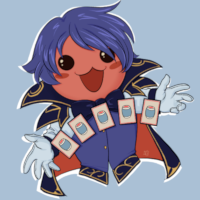- Posts: 1659
- Thank you received: 889
Bugs: Recent Topics Paging, Uploading Images & Preview (11 Dec 2020)
Recent Topics paging, uploading images and preview bugs require a patch which has not yet been released.
Catch-up mechanisms are a band-aid: CHANGE MY MIND
Manipulating turn order poorly (or not bidding on plants appropriate to position) will cause an inexperienced player to fall behind hard in cash. In that sense, it does the opposite of the typical catch-up mechanic. It punishes poor play and stupidity. Luck is the typical catch up mechanic.
Please Log in or Create an account to join the conversation.
Sagrilarus wrote: Catch-up is the result of removing luck from games. Without luck there's no way to exchange higher risk for higher reward, and your position can become hopeless well before the end of the game. To mitigate this designers create ways to prevent that hopeless position from occurring.
Great observation.
Theme (okay, setting) and narrative are very crucial to my enjoyment of games. Most catch-up mechanisms suck because they sabotage the narrative and reveal the setting to be nothing more than selection of art and font. Luck, however, works great as a potential catch-up mechanism, as long as it doesn't reduce the game to mindless dice-rolling. Even better than luck is push-your-luck, because that potentially offers a legitimate (from a narrative standpoint) way to get somebody back in the game. And because push-your-luck always involves a punishing downside, it tends to discourage players from going for it unless necessary.
Please Log in or Create an account to join the conversation.
Josh Look wrote: I don’t think catch up mechanics are stupid at all, plenty of games I love have them. What we should be directing our ire towards are games that are artificially close. Games that reward points for doing anything short of sitting there are especially terrible. Like Eclipse.
I clicked the "thank you" button before hitting that last sentence. Let it be known that I'd like to retract the "thank you".
Eclipse is a game that hinges on skill. It's intricate, strategies are varied, and managing your action economy is crucial to success. It's not a point salad and directionless play will offer you very little reward. You can literally lose if you push too hard.
Please Log in or Create an account to join the conversation.
Power Grid is great and the way turn order works doesn't bother me. Some have people explained it as government regulation or something. I think the way supply and demand for resources works is quite simple and clever at the same time.
Please Log in or Create an account to join the conversation.
- Jackwraith
-

- Away
- Ninja
-

- Maim! Kill! Burn!
- Posts: 4370
- Thank you received: 5697
SebastianBludd wrote: I like the catch-up mechanism in Cthulhu Wars: the player with the least power gets to go up to half of the highest power at the table if they would normally have less than that.
It balances the fact that not only is this game a knife fight in a phone booth (except in this game one faction has a chainsaw, one has a 20 lb. sledgehammer, etc.), but it also mitigates a bad turn where a player might get clobbered because they're starting to pull away, or they just had bad luck.
And it really doesn't take anything away from the game. The half power rule won't launch you back into contention, you'll still have to play well and pick your moments if you hope to recover.
I was just going to cite this. In the rulebook, it sticks out like a knife still sitting in a wound. It's patently obvious that it was introduced to lessen the impact of snowballing. ("Thirty-seven?!!") That immediately makes me think that there's a design flaw that they were patching over. However, I think Sag and Chris have it right, in that the removal of luck mechanisms sometimes demands a way for other players to stay in the game. Cthulhu Wars has dice for combat, but even those have far less impact than most other dice-driven combat systems, in that killing an enemy is a 1 in 6 chance and pushing them out of the way is a 1 in 3. Like any dice-based combat, you can certainly modify the odds in your favor, but there's no other element in the game (card draws, etc.) that prevents a player with a couple good first turns (like, say, Cthulhu) from crushing everyone around him if players were solely reliant on available gates and cultists to recover. Otherwise, the game is simply too structured (all the money for cards went into the minis) to allow for that kind of variance.
In fact, that's the argument about the Tcho-Tcho expansion, isn't it? That the player can win by default after a couple good early turns? Does that reveal a structural problem in the game or just that expansion?
Please Log in or Create an account to join the conversation.
Jackwraith wrote: In fact, that's the argument about the Tcho-Tcho expansion, isn't it? That the player can win by default after a couple good early turns? Does that reveal a structural problem in the game or just that expansion?
As far as I know it's just the expansion, and I believe there is errata included in Onslaught 3?
I think Peterson designed the Tcho Tcho's that way to encourage immediate aggression from other players, as it can be easy for people to fall into the little fiefdom dance in the first two turns. I think this was an attempt to break the script that can occasionally develop from groupthink, but he may have overdone it a bit.
Please Log in or Create an account to join the conversation.
- Erik Twice
-
 Topic Author
Topic Author
- Offline
- D8
-

- Needs explosions
- Posts: 2300
- Thank you received: 2650
I'm not very fond of this line of thinking. Let me explain why.hotseatgames wrote: Nobody likes it when the outcome is assured; no one likes playing a game they think they have lost by turn 2. Keeping people "in the game" is commendable, but absolutely I agree that there are good ways and bad ways to do this.
The first reason is, what do we mean by the outcome being assured? Is it that a player can't do anything to improve his position, that there are no meaningful decisions left or that, hey, someone is being consistently outplayed and will lose if things don't change? Because, often, when people complain about "not being able to win", it's not that they can't, but they won't and they feel they should.
And I think it's important to think, why is it important to win? Games, by definition, are won and lost, they don't stop being fun because you don't win. I think that, if you enjoy a game, you should be able to enjoy it regardless of whether you win or lose every single time.
I mean, is it pointless or unenjoyable to play Terraforming Mars with me because I win 95% of my games? Is Food Chain Magnate less fun because I always lost when playing it?
I think the underlying issue is also what we understand by "winning". I think we all agree that it's pointless to play a game in which you cannot do anything. If a game regularly puts a player in that position, well, it should end sooner. But I don't think "I can't win" as commonly understood is really an uninteresting position to be.
The issue is that it's binary. "I can win/I cannot win". Well, under those terms, yeah, many games have this issue and stop being worth playing. But if instead of that we understand winning as "increasing one's victory margins", then things make more sense and are more interesting and games work. Sure, losing by 40 points and losing by two are both "losing", but it's interesting and fun and games work better if you treat the later example as being better than the former.
I recognize this is easy for me to say, but winning is not interesting. It's not why we play games. Winning is just a goal, a carrot to make the game work. Like Knizia says, you must play to win, but it's the path there that is interesting, not the win itself.
That's more or less my take on it. Not sure if it makes sense written like that.
I think I know what you mean.Jexik wrote: Doesn't (Age of ) Steam (of the World) already have a catchup mechanism? Don't you lose points every round for every 10 points you have... or something like that?
In both Age of Stem and Railways of the World there's a track around the board with numbers of them. And this number is both your income and your victory points. Hence, in order for the game not to get out of control you are put in the weird situation that moving that track foward may actually reduce your income. Which I don't think is really a catchup mechanism, simply sloppy design.
In Steam, income and victory points are separate, which gets rid of the wonkyness. It's one of the reasons I prefer this version of the game.
That's some high-quality bait right there!SaMoKo wrote: Steam has a catch up mechanism in Wallace evening out the bidding rewards compared to Age of Steam
Please Log in or Create an account to join the conversation.
- Erik Twice
-
 Topic Author
Topic Author
- Offline
- D8
-

- Needs explosions
- Posts: 2300
- Thank you received: 2650
This reminds me of a related design "issue": Games that can be won or lost on every single turn.Sagrilarus wrote: Catch-up is the result of removing luck from games. Without luck there's no way to exchange higher risk for higher reward, and your position can become hopeless well before the end of the game. To mitigate this designers create ways to prevent that hopeless position from occurring.
On one hand, this is the logical conclusion of a game with no hopeless positions: Players can and will win when that happens. And it's the logical conclusion of a game where every single turn is meaningful, what's more meaningful than every single step being directly responsable for winning or losing?
You can find this feature is disproportionately present in great games. Netrunner, Dune, Sekigahara, Chess, Twilight Struggle, 1830, Titan...they all have this "the game can be won on any turn" thing going on.
On the other, this can be a practical issue. It's why Dune has such a variable game lenght, after-all. And it's not like it fits every game.
Just something interesting I've noticed.
Please Log in or Create an account to join the conversation.
Please Log in or Create an account to join the conversation.
- Legomancer
-

- Offline
- D10
-

- Dave Lartigue
- Posts: 2944
- Thank you received: 3873
What's bad is chest-thumping "git gud" bullshit.
Please Log in or Create an account to join the conversation.
- ChristopherMD
-

- Away
- Road Warrior
-

- Posts: 5238
- Thank you received: 3789
Legomancer wrote: What's bad is chest-thumping "git gud" bullshit.
I don't understand that sentence. What does "git gud" translate to in English?
Please Log in or Create an account to join the conversation.
Legomancer wrote: Catch-up mechanisms are fine.
What's bad is chest-thumping "git gud" bullshit.
Are you referring to some discussion at BGG? I don't think anybody here is making the git gud argument.
Please Log in or Create an account to join the conversation.
Please Log in or Create an account to join the conversation.
- Erik Twice
-
 Topic Author
Topic Author
- Offline
- D8
-

- Needs explosions
- Posts: 2300
- Thank you received: 2650
It's a mispelling of "Get good". It's an ironic phrase that got popular with Dark Souls, kind of like "stop complaining and practise". Most often it's jokey or simply because, well, there's no more to it, but some people take it too seriously and use it in a gatekeeping way.ChristopherMD wrote: I don't understand that sentence. What does "git gud" translate to in English?
For example:
Please Log in or Create an account to join the conversation.
Erik Twice wrote: In Steam, income and victory points are separate, which gets rid of the wonkyness. It's one of the reasons I prefer this version of the game.
This might be the one that I have not played out of them.
Poorly implemented catch-up mechanisms are really bad. Once people started abusing them in Summoner Wars,* it caused a big shift in the design of future decks, but those old decks were still a lot of people's first introduction to the game. I'm trying to come up with a good analogy to another game... maybe if you played a 6-cost development in Race for the Galaxy on your 2nd or 3rd turn, if you drew the right card you could steal two cards out of your opponent's hand.
*How it actually worked was that about half of the factions had Events (free to play cards) that had the clause "If you have fewer units on the battlefield than your opponent," you could play them. Reinforcements let you play 2 common units at a discount, Magic Drain stole 2 magic from your opponent's pile. Because destroying units grants magic, it perhaps seemed reasonable that the game could snowball if someone killed a bunch of your units and you're left with nothing. The game has a running mulligan/ magic generation engine built in by allowing you to discard unwanted cards to your magic pile so a catch-up mechanic probably wasn't really needed (I've heard it compared to the Force mechanic in decipher's old SW ccg). BUT you also get magic for even killing your own units with your attacks. This was kind of fun thematically if you're playing goblins or undead, but it became a mess. Even factions that didn't have these Event cards would often spend their opening turns by killing their starting units to avoid getting hit by Catch Up Events that their opponent had. The 3 strongest decks out of the first 8 (and 3/4 at launch) (and the first to arrive on the app) had CUEs, so they were pretty unescapable for a long time in tournament play or against randos online.
Please Log in or Create an account to join the conversation.
 Games
Games














 How to resolve AdBlock issue?
How to resolve AdBlock issue?